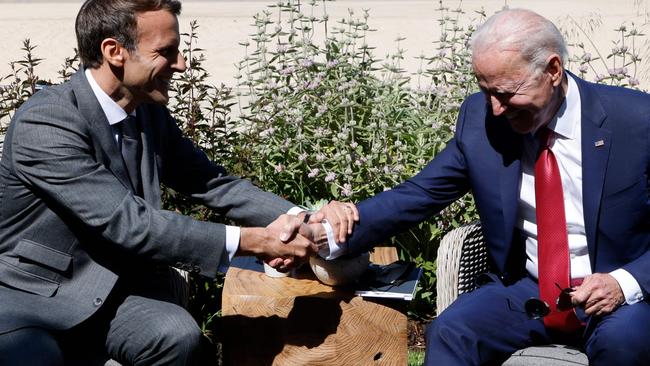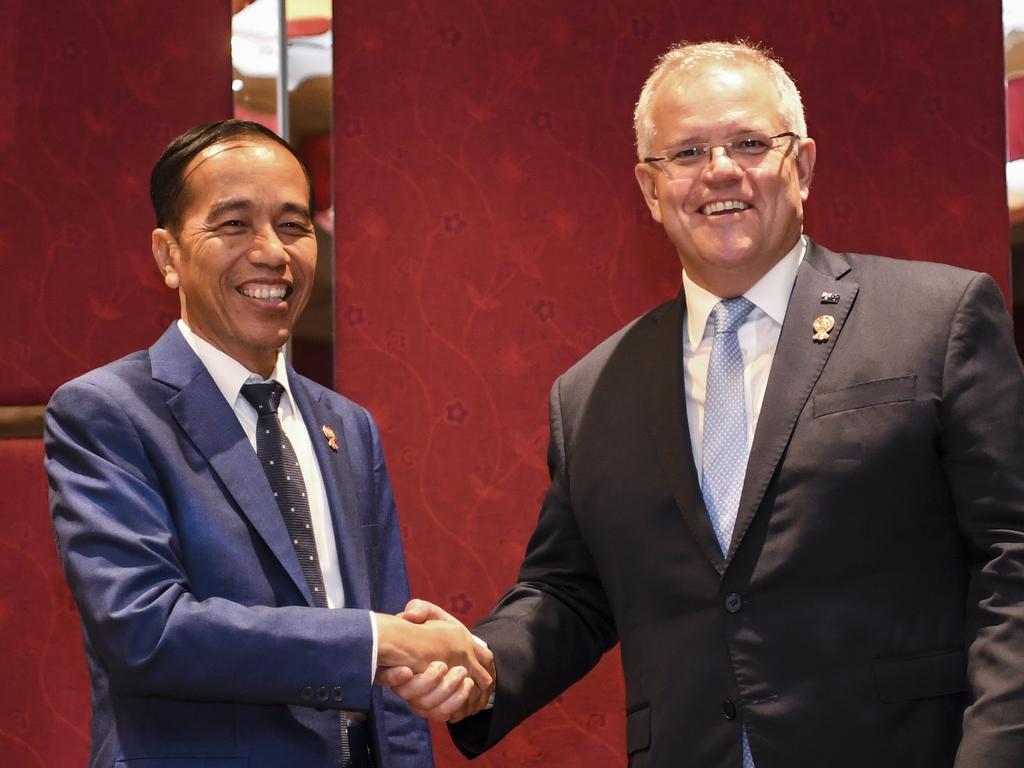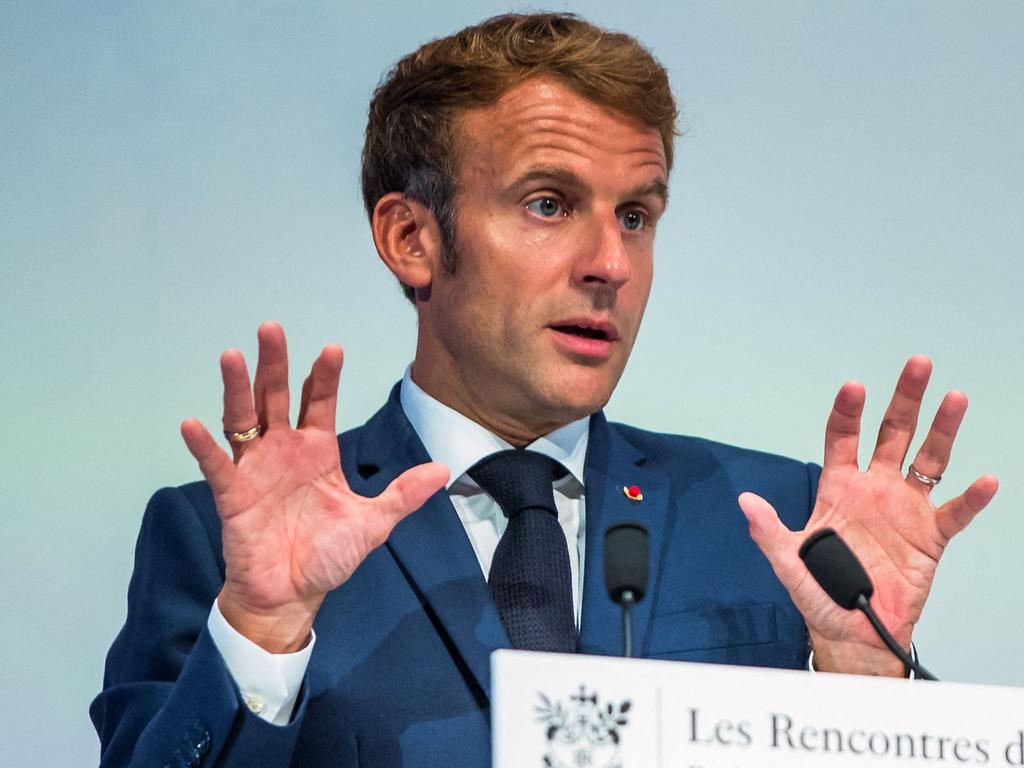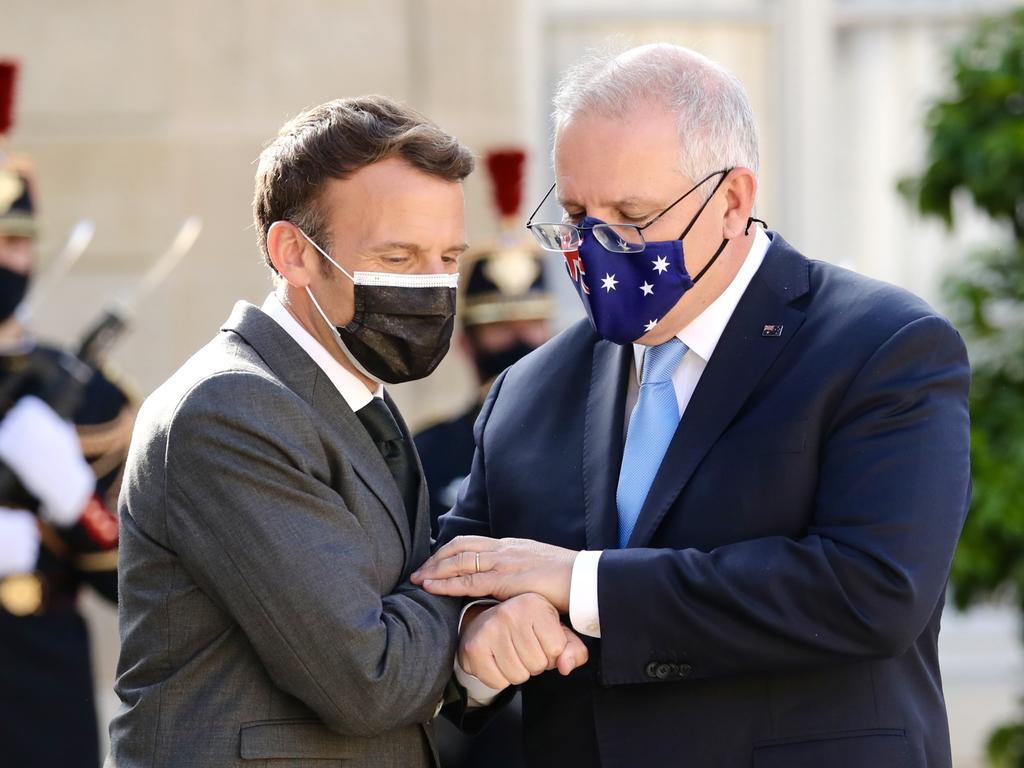
Happy days.
European Union governments and their media followers couldn’t contain their glee when Joe Biden was elected president. “The Grown Ups are Back in Charge in Washington,” proclaimed a jubilant late-November headline in the Financial Times, the house organ of the European establishment, channelling as usual the Paris-Brussels-Berlin worldview.
There’d be no more unpredictable unilateralism from a half-crazed Republican president who had behaved so abominably in the face of the superior intellects and table manners of America’s European allies. The liberal international order would be rescued by a new, deeper comity between the US and EU.
A special bonus for the European elites was that the Brits were finally going to get their comeuppance. After all those years of talk about “the special relationship” between London and Washington, Boris Johnson, widely viewed by Democrats and Europeans alike as a more comical version of Mr Trump, was going to get frozen out by the new president.
Ten months on, what wouldn’t President Macron give for an American president whose main offence seems to have been an overly macho handshake and a penchant for calling European leaders “nasty”?
Evidently energised by their diplomatic triumph in executing the US withdrawal from Afghanistan, the Biden administration last week found a new way to dismay the European allies it claims to regard as its fast friends.
Flanked by video screens in the White House East Room beaming images of Mr Johnson in London and Scott Morrison (or “that fellow down under” as Mr Biden called the Australian prime minister) in Canberra, the president announced the formation of a new strategic alliance: AUKUS — a tripartite security, technology and intelligence-sharing arrangement among the three countries.
Its first mission is the construction of eight nuclear submarines for the Australian navy, which is seen as a vital measure to begin to counter China’s growing assertiveness in the Indo-Pacific.
The deal was an astonishing coup de main against the nation both sides like to describe as America’s oldest ally. Only five years ago, Paris had signed a $70 billion deal with Canberra for a fleet of French nonnuclear-powered submarines, a deal that is now cancelled.
It isn’t difficult to understand the Gallic fury. The timing of the announcement—with minimal advance notice—could hardly have been worse, coming the day after Mr Macron had announced that French special forces had killed a leading ISIS figure who was behind the 2017 killing of four Americans in West Africa.
But the French like to consider themselves foreign-policy realists, and they should understand that, in the famous diplomatic phrase, nations have “no friends, only interests.” According to Australian officials, the deal with France was already under strain over concerns about its suitability in a climate of heightened tension with Beijing. More important, the blow the US and its allies have dealt the French reflects the dramatically changed global security circumstances the world finds itself in 30 years after the end of the Cold War.
To its credit, the Biden administration has largely signed on to the idea that the defining issue of the 21st century will be the strategic rivalry between the US and China. It came into office, however, spouting the usual Democratic bromides that containing China’s rise could best be done multilaterally, with allies in Europe especially.
But Europe has made clear it doesn’t want to join that rivalry. Even France, which uniquely now since the UK left the bloc has the military capabilities to project power globally, has indicated its reluctance. Condemning the US this weekend, the French Foreign Minister Jean-Yves Le Drian said: “We see the rise of an Indo-Pacific strategy launched by the United States that is militarily confrontational. That is not our position.”
That’s because the EU continues to decline to take any serious responsibility for global peace and security, preferring to see the economic and commercial opportunities in the relationship with China, rather than the threat the Chinese Communist Party represents.
Germany, the economic behemoth in the EU, is the main driver behind this. It recently led the bloc’s effort to sign an investment deal with China. It has resisted US attempts to restrict the Chinese telecom giant Huawei from developing its 5G network. German exports to China continue to be the source of millions of German jobs and in an uncertain international economic climate German politicians have no intention of jeopardising them, as they have made clear in the election campaign to succeed Angela Merkel, which ends this weekend.
This is the existential problem for the EU exposed by Mr Biden’s undiplomatic coup: There has probably never been as large a mismatch between the economic weight of an institution and its political and military strength. Through its history, the EU has prioritised—to great success—its economic interest, safe in the knowledge that the US security umbrella was there to protect it. Now that the US really needs it to share some of the costs of that umbrella, the EU is missing in action.
The Wall Street Journal








Remember that terrible moment in the trans-Atlantic relationship when Donald Trump shook Emmanuel Macron’s hand so hard his arm nearly fell off?